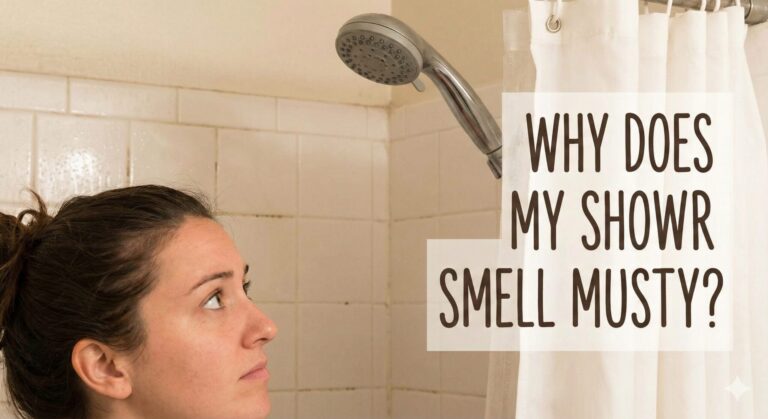Do Warm Showers Help You Sleep? The Science of the “Warm Bath Effect”
⚠️ Medical Disclaimer: The content provided here is for informational purposes only and does not constitute medical advice. If you suffer from chronic insomnia or sleep disorders, please consult a healthcare professional.
We have all had those nights. You stare at the ceiling, counting sheep, checking the clock, and stressing about how tired you will be tomorrow. Insomnia is a modern epidemic. While there are countless supplements and gadgets promising a cure, the solution might be as simple as walking into your bathroom. But the question remains: do warm showers help you sleep?
The short answer is YES. But it is not just about getting wet. It is about biology, timing, and temperature. Just as we debate is a cold shower or hot shower better for waking up, the science of sleep hygiene is specific. In this comprehensive guide, we will dive deep into the “Warm Bath Effect,” how to optimize your bathroom for relaxation, and the tools you need to turn your shower into a sleep sanctuary.
1. The Science: Why Warm Water Makes You Sleepy
It seems counterintuitive. Doesn’t heat wake you up? Actually, no. The magic lies in Thermoregulation.
🧬
The Circadian Rhythm Hack
Your body has a natural internal clock called the circadian rhythm. As bedtime approaches, your core body temperature naturally drops. This drop is a signal to your brain to produce melatonin (the sleep hormone).
When you take a warm shower (ideally 104°F to 109°F), the heat dilates your blood vessels (vasodilation), pulling blood to the surface of your skin. When you step out of the shower into the cooler air, your body heat escapes rapidly. This sudden drop in core temperature mimics the natural sleep signal, tricking your brain into thinking it is time to sleep.
According to the Sleep Foundation, this process is known as the “Warm Bath Effect,” and it can help you fall asleep 36% faster.
2. Timing is Everything: The 90-Minute Rule
If you jump from the shower straight into bed while still hot and sweating, you will achieve the opposite effect. You will be alert, sticky, and uncomfortable.
The Golden Window: You should shower 60 to 90 minutes before bed. This gives your body enough time to experience the initial heating and the subsequent cooling phase. This aligns perfectly with the debate on night shower vs morning shower—for sleep quality, night wins every time.
If you wait too long, your body warms back up. If you shower too close to bed, your core temp is still elevated. It’s a delicate balance.
3. Creating the Ultimate Sleep-Inducing Shower
A quick rinse under a dribbling nozzle won’t relax you. You need to set the mood. Here is how to upgrade your hardware for maximum relaxation.
The Hardware
High-pressure jets can be stimulating. For sleep, you want gentle immersion. Installing a rainfall shower system is ideal because it covers more of your body, heating you evenly without the aggressive pounding of a massage head.
If your current setup is lackluster, check our guide on how to install a rainfall shower head yourself. It’s a 20-minute upgrade that changes everything.
The Atmosphere
Light plays a huge role in sleep. Bright bathroom lights suppress melatonin. Consider showering by candlelight or installing a steam shower generator to turn your bathroom into a foggy, dim sauna. The steam also helps clear nasal passages, ensuring you don’t wake up snoring.
Best Products for a Sleepy Shower Routine
We have selected these products to transform your bathroom into a pre-sleep sanctuary.
Cleverfy Lavender Shower Steamers
Aromatherapy for Sleep. Lavender is clinically proven to reduce anxiety. Place one of these in the corner of your shower (away from the direct stream) and inhale the relaxation.
Check Price on Amazon
SparkPod Rainfall Shower Head
Gentle Immersion. This head provides a wide, soft spray pattern that feels like warm rain. Perfect for the “Warm Bath Effect” without the need for a bathtub.
Check Price on Amazon
Gorilla Grip Chenille Bath Mat
Post-Shower Comfort. Stepping onto cold tile wakes you up. Keep the cozy vibe going by stepping onto this ultra-plush, absorbent mat.
Check Price on Amazon
Troubleshooting Your Shower Routine
Problem: The Water Isn’t Hot Enough
If you can’t get the temperature up to 104°F, the “Warm Bath Effect” won’t trigger. You might be wondering why your shower is not getting hot. It could be a faulty mixing valve or a water heater issue. Fix this first.
Problem: Feeling Dizzy
Be careful. Too much heat can lower your blood pressure too fast, leading to fainting. If you ask why do I get dizzy in the shower, it’s likely vasodilation. If this happens, lower the temp and sit down. Consider a shower chair for safety if you love long, hot sessions.
Problem: Mold and Humidity
Night showers leave moisture sitting in your bathroom for hours. This invites mold. Always use a shower squeegee before bed to remove standing water on the glass shower doors.
Shower Temperature Guide for Sleep
| Temperature |
Effect on Body |
Sleep Suitability |
| Cold (< 70°F) |
Increases alertness, spikes cortisol. |
❌ Poor (Avoid before bed) |
| Warm (104°-109°F) |
Dilates vessels, drops core temp after. |
✅ Excellent |
| Hot (> 112°F) |
Sweating, dehydration, heart stress. |
⚠️ Caution (Can keep you awake) |
Frequently Asked Questions
Should I wash my hair before bed?
Ideally, no. Sleeping with wet hair can damage the follicles and promote fungal growth on your pillow. If you must, dry it thoroughly. Read more: Shower Before Bed or Not?
Can a shower help if I’m sick?
Yes. The steam helps loosen congestion. However, don’t make it too hot if you have a fever. Just getting clean can also improve your mood.
What if I exercised late at night?
You definitely need to shower to remove sweat and lower your body temperature. Check our guide on showering after exercise for the best protocols.
Is it okay to shower every night?
Yes, as long as you moisturize. Frequent hot water can strip skin oils. If you have dry skin, consider skipping a night occasionally or using cooler water.
Conclusion
The science is clear: Warm showers do help you sleep, provided you get the timing right. By showering 90 minutes before bed, you leverage your body’s natural biology to induce a state of relaxation and readiness for rest.
So, tonight, dim the lights, grab some lavender steamers, and let the warm water wash away the day’s stress. Just don’t forget to keep your drain clear so your relaxing spa moment doesn’t turn into a puddle!
Disclaimer: As an Amazon Associate, ShowerBlog earns from qualifying purchases.







